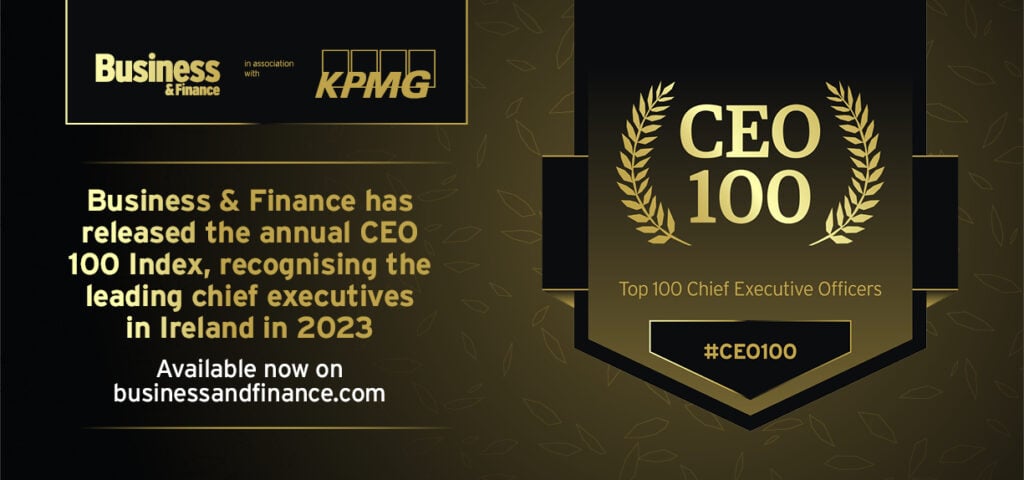Irish employers are hiring interim executives for short-term mission critical assignments, writes recruitment expert John Kelly, general manager, IndEx Partners.
A fundamental change is underway regarding the way in which companies in Ireland implement strategic change. Employers with important change strategies to design and implement are in many cases moving away from consulting firms and relying increasingly on the pool of talented senior executives now available as interim leaders.
The shift away from consulting firms for some significant work projects is also a factor in the desire of many experienced business leaders to become independent operators who can make a high impact in a short period as an interim executive.
As well as marketplace evidence, this change in the landscape is reflected in a new and comprehensive study of the Irish interim executive market. This is the first such study since 2008.
The new study, undertaken by IndEx Partners in conjunction with Amárach Research, has also found that being made redundant was a factor for just one in 10 people when choosing to take up employment as an interim executive. In addition, almost six in 10 people who do take up an interim role see it as being more attractive than a permanent, full-time position.
The research aimed to answer a variety of questions, the key ones being: to what extent has interim management become established as a long–term career choice for senior executives? What are the motivations for becoming an interim executive? What are the qualities most valued in interim executives and what needs drive companies to engage interims for a certain period of time?
TWO SIDES OF THE COIN
With interim executive roles now forming a distinct segment of the executive workforce, it is vital to consider the role from both the employer and the interim executive perspective.
Companies in Ireland are now leveraging interim roles either to deliver a specific business result within a defined time or to fill a temporary gap in their permanent structure.
From an employer perspective, a defining characteristic of an interim executive is the capacity for them to make an immediate positive impact.
Within the first few days of landing in the client organisation, an interim has to hit the ground running by identifying the key issues very quickly, establishing relationships with stakeholders, gaining their confidence and lining up the team behind whatever it is they are trying to achieve.
IMMEDIATE IMPACT
The areas that came through in the IndEx Partners survey where interim executives add value over a permanent hire include: creating an immediate impact, a results focused capacity to implement and the ability to get people on side quickly in challenging circumstances.
Taking the perspective of the interim executive, interims thrive on very challenging complex roles in uncertain, fast moving and volatile environments. They are doers and typically bring hands-on expertise and execution know-how to assignments.
The pace and change involved in being an interim executive means it’s not for everybody. The vast majority of top-tier interims are able to deliver the desired results only by being sensibly over qualified for the job in hand, rather than growing into the role.
REAL TIME EXPERIENCE
The market for interim executives is vibrant and the types of organisations benefiting from the use of interims reflects the full spectrum of Ireland’s recovering economy.
IndEx Partners recently worked with a high growth technology company whose big challenge was embedding the capability to scale efficiently and smartly. Faced with the opportunity to double its business over the next 18 months, the leadership team was rightly concerned about the capacity of the core operations; product development, delivery and support to realise and sustain the growth opportunity.
An interim has to hit the ground running by identifying the key issues very quickly
The company, one of Ireland’s high tech stars, had a lot in common with many growth stage businesses – loose processes with a lot of very talented people running around doing many tasks in an unstructured manner. This approach had served them well in the early growth stages, however it was no longer sustainable now that the business was scaling significantly.
The rapid appointment of an interim chief operations officer who had helped a number of high growth technology businesses to scale efficiently, laid the foundations for the long-term growth of the company. The individual made a significant impact over a six month period, led the leadership team in putting the right structure, repeatable processes and behaviours in place to support growth and in addition, hired a full-time COO successor.
SWIFT ACTION
Another recent example where an interim executive delivered a long-term solution in a short time-frame involved helping a bank to transform its personal lending operation. The organisation need was to reduce loan application decision turnaround times for a significant cohort of customers from over a week to same day decision. Achieving this meant transitioning considerable numbers of customers to digital channels for swifter decisions.
Historically the bank would have retained one of the top-tier consulting firms to deliver a business critical programme of this nature. However, the bank instead opted for a hands-on seasoned practitioner who had direct line responsibility for re-engineering personal lending operations multiple times before and who successfully implemented the transformation programme.
TALENT POOL

John Kelly, IndEx Partners
For the growing cohort of high-end independent talent, the attraction of working independently is about both professional satisfaction and personal balance.
Some 33% of respondents to the IndEx Partners survey cited the opportunity to make a lasting impact over a short period (six to nine months typically) as being the primary motivation for deciding to operate independently. A quarter of respondents highlighted the results focused nature of interim work and referenced the variety, flexibility and challenges that operating independently offers.
These independent professionals are increasingly being trusted by corporations to undertake mission-critical assignments, which would have been managed in the past by permanent staff or external consultancy firms.
The market has taken to the interim executive opportunity at full throttle and short-term needs connected with growth, efficiency and risk management typically underpin client requirements for an interim executive led intervention.
Organisations are also increasingly recognising that the profile of individuals who will successfully deliver high impact transformation is fundamentally different to the individual best suited to on-going operational leadership. Using interim executives is therefore a win-win for the organisation, the in-situ team and the interim executive themselves.
This is reflected in the research which also shows that 32% of those surveyed have been working as an interim executive for more than four years, with four being the average number of assignments undertaken in that period. This development is underpinned by the level of confidence in the market, with 67% expecting the opportunities in Ireland for interim executives to increase over the next three years. Clearly, it is a growing field in Ireland as businesses increasingly experience the value in utilising senior level interim talent to deliver critical strategic, transformation and growth initiatives.







